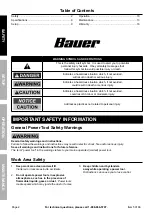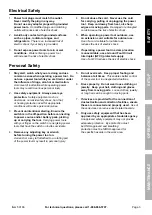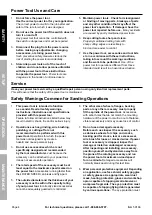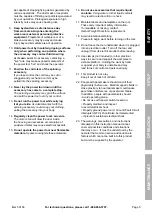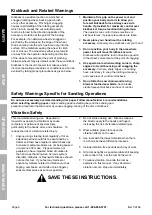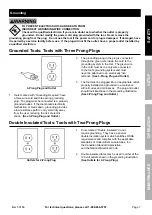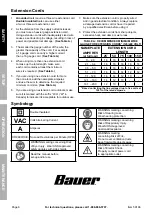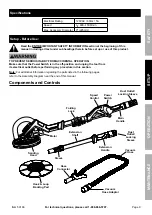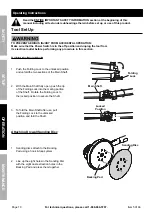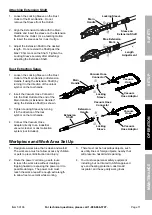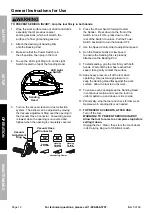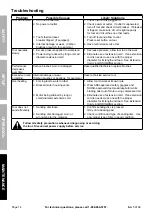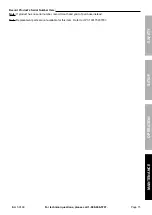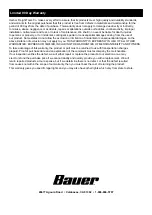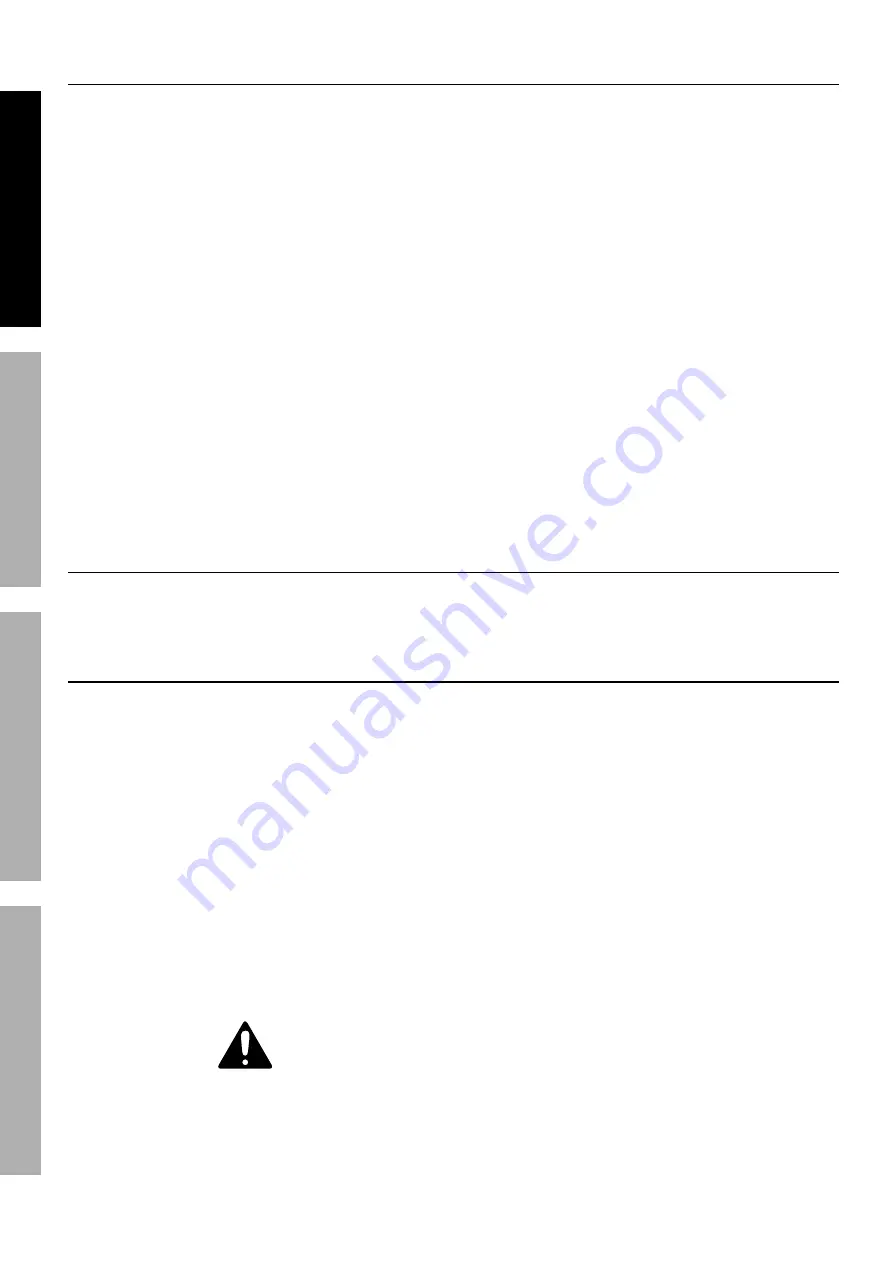
Page 6
For technical questions, please call 1-888-866-5797.
Item 59166
Kickback and Related Warnings
Kickback is a sudden reaction to a pinched or
snagged rotating wheel, backing pad, brush
or any other accessory. Pinching or snagging
causes rapid stalling of the rotating accessory
which in turn causes the uncontrolled power
tool to be forced in the direction opposite of the
accessory’s rotation at the point of the binding.
For example, if an abrasive wheel is snagged or
pinched by the workpiece, the edge of the wheel
that is entering into the pinch point can dig into the
surface of the material causing the wheel to climb
out or kick out. The wheel may either jump toward
or away from the operator, depending on direction
of the wheel’s movement at the point of pinching.
Abrasive wheels may also break under these conditions.
Kickback is the result of power tool misuse and/or
incorrect operating procedures or conditions and can be
avoided by taking proper precautions as given below.
1.
Maintain a firm grip on the power tool and
position your body and arm to allow you
to resist kickback forces. Always use side
handle, if provided, for maximum control over
kickback or torque reaction during start-up.
7KHRSHUDWRUFDQFRQWUROWRUTXHUHDFWLRQVRU
NLFNEDFNIRUFHVLISURSHUSUHFDXWLRQVDUHWDNHQ
2.
Never place your hand near the rotating
accessory.
Accessory may kickback over your hand.
3.
Do not position your body in the area where
power tool will move if kickback occurs.
.LFNEDFNZLOOSURSHOWKHWRROLQGLUHFWLRQRSSRVLWH
WRWKHZKHHO¶VPRYHPHQWDWWKHSRLQWRIVQDJJLQJ
4.
Use special care when working corners, sharp
edges etc. Avoid bouncing and snagging the
accessory.
&RUQHUVVKDUSHGJHVRUERXQFLQJ
have a tendency to snag the rotating accessory
and cause loss of control or kickback.
5.
Do not attach a saw chain woodcarving
blade or toothed saw blade.
Such blades
create frequent kickback and loss of control.
Safety Warnings Specific for Sanding Operations
Do not use excessively oversized sanding disc paper. Follow manufacturer’s recommendations
when selecting sanding paper.
/DUJHUVDQGLQJSDSHUH[WHQGLQJEH\RQGWKHVDQGLQJSDG
SUHVHQWVDODFHUDWLRQKD]DUGDQGPD\FDXVHVQDJJLQJWHDULQJRIWKHGLVFRUNLFNEDFN
Vibration Safety
This tool vibrates during use. Repeated or
long-term exposure to vibration may cause
temporary or permanent physical injury,
particularly to the hands, arms and shoulders. To
reduce the risk of vibration-related injury:
1. Anyone using vibrating tools regularly or for an
extended period should first be examined by a
doctor and then have regular medical check-ups
to ensure medical problems are not being caused
or worsened from use. Pregnant women or
people who have impaired blood circulation to
the hand, past hand injuries, nervous system
disorders, diabetes, or Raynaud’s Disease should
not use this tool. If you feel any medical or
physical symptoms related to vibration (such as
tingling, numbness, and white or blue fingers),
seek medical advice as soon as possible.
2. Do not smoke during use. Nicotine reduces
the blood supply to the hands and fingers,
increasing the risk of vibration-related injury.
3. Wear suitable gloves to reduce the
vibration effects on the user.
4. Use tools with the lowest vibration when there
is a choice between different processes.
5. Include vibration-free periods each day of work.
6. Grip tool as lightly as possible (while still keeping
safe control of it). Let the tool do the work.
7. To reduce vibration, maintain the tool as
explained in this manual. If any abnormal
vibration occurs, stop use immediately.
SAVE THESE INSTRUCTIONS.
SAFETY
OPERA
TION
MAINTENANCE
SETUP


